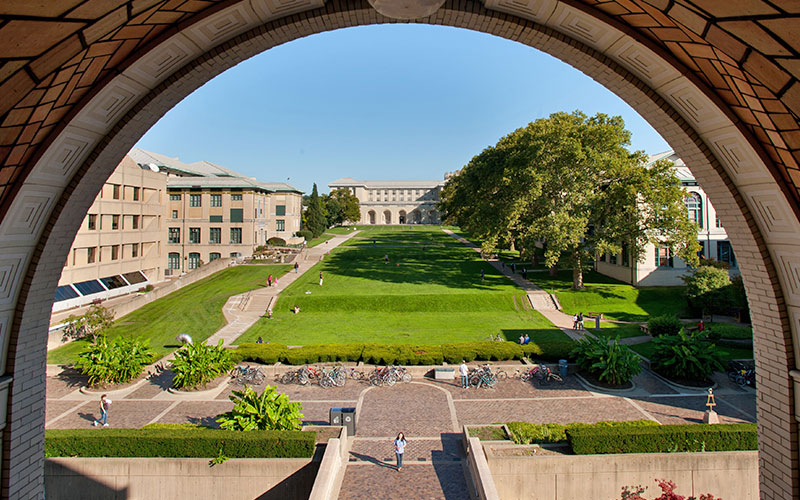
Department of Education Funds Prestigious Fellowship Program in CEE
Across cities and small towns, much of our nation’s infrastructure has fallen to disrepair. Many transportation and water infrastructure systems are outdated and dysfunctional, requiring new approaches and technological advancements to increase safety and efficiency.This failing infrastructure has become a critical priority for the White House, as detailed in the 2018 plan for Rebuilding Infrastructure in America, and was named by the Department of Education among the top four areas of current national need. It’s also an area where Carnegie Mellon’s CEE Department has a long track record of using computing and information technologies to solve complex civil engineering problems.
This fall, the Department of Education recognized this expertise by awarding CEE with funding for the highly prestigious and competitive Graduate Assistance in Areas of National Need (GAANN) fellowship program. The GAANN fellowship will provide a cohort of six PhD students in the Advanced Infrastructure System (AIS) PhD program with full tuition and a yearly stipend while they research innovative ways to modernize US transportation and water infrastructure.
“Our unique graduate program in Advanced In frastructure Systems aligns very well with the critical national need for infrastructure advancement identified by the White House and incorporated by the Department of Education into the GAANN program,” says CEE Department Head, Dr. David Dzombak.
For more than 15 years, AIS students and faculty have studied, developed, and refined data-driven solutions and technology for infrastructure design, operation, management, and control. GAANN fellowship students will continue this work, as they collaborate with AIS faculty experts to conduct research on improving roads, bridges, tunnels, buildings, pipelines, urban water systems, as well as traffic and water quality management. Simultaneously, they’ll explore applications in this area for sensing systems, data mining and analytics, and artificial intelligence techniques. For their projects, the fellows may collaborate with local and national government agencies, startup companies, large, established businesses, and everything in between.
“These students will have the opportunity to contribute directly to meeting an important engineering need of the nation, to be at the forefront of infrastructure technology development, and to be well positioned for impact in the next stage of their career,” says Dr. Dzombak, who leads the GAANN Fellowship Steering Committee along with Dr. Burcu Akinci and Dr. Scott Matthews.
Akinci adds, “This grant brings our students and faculty the opportunity to explore what they’re passionate about within the framework of critical infrastructure systems and computing. It will be impactful for the students and hopefully impactful for the entire civil and environmental engineering community.”
Anyone interested in applying for the fellowship must complete the regular CEE graduate application process by January 5, 2019 for Fall 2019 admissions. CEE will also accept fellowship applicants in Fall 2020. Only US citizens or permanent US residents with excellent academic credentials will qualify for this fellowship. Women and underrepresented minority students are especially encouraged to apply.